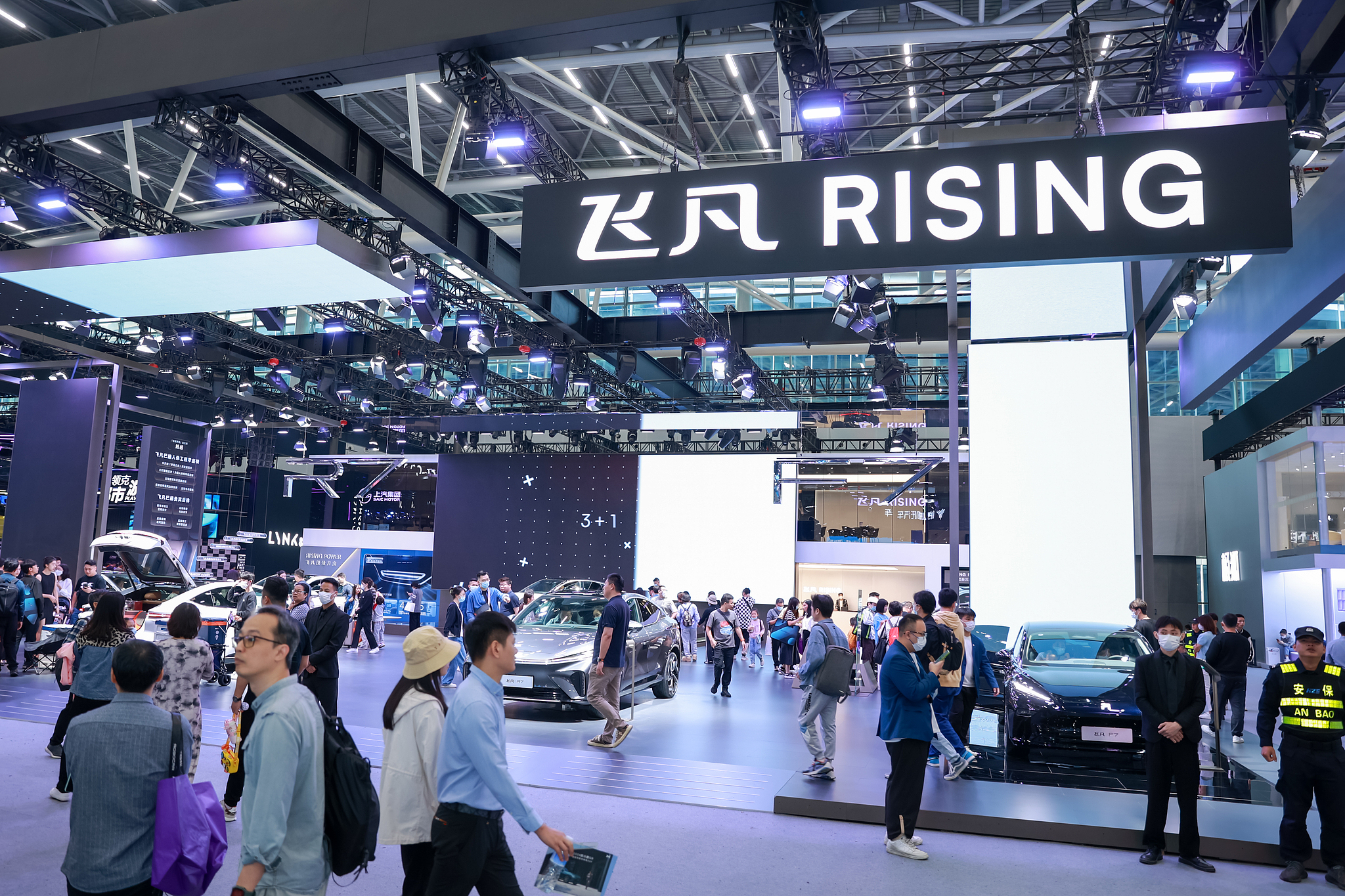
After three years as an independent entity, Feifan Auto has returned to SAIC Passenger Vehicles.
On October 28, SAIC Passenger Vehicles released a poster titled "SAIC Passenger Vehicles - Roewe Feifan: Merging Dreams, Committing to Shared Progress," accompanied by a video stating, "Roewe and Feifan will no longer run separately but choose to move forward together."

Feifan Auto
In recent years, many traditional car manufacturers have adopted new branding strategies in an effort to compete in the electric vehicle market, and SAIC Roewe is no exception. However, Feifan Auto has faced numerous challenges.
In 2020, Roewe unveiled a new "R" logo, creating a dual-brand system alongside the former "Lion" logo. The "Lion" logo was used for traditional combustion engine vehicles, while the "R" logo was reserved for mid-to-high-end electric models.
However, the market did not respond favorably to Roewe's push towards the mid-to-high-end segment, leading SAIC to separate the "R" branding from Roewe and establish a new brand called "R" Auto.
Nevertheless, the launch of the MARVEL R and ER6 models from R Auto, which retained distinct Roewe styling, meant that the ER6 was essentially a revamped Roewe Ei6, while the Marvel R was derived from Roewe's Marvel X.
This approach of merely changing the exterior led to both models primarily appearing in the ride-sharing market.
Realizing the issues, in 2021, the soon-to-be-forgotten "R" Auto was renamed Feifan Auto, aiming to operate independently and pave a path in the mid-to-high-end electric vehicle segment.
In September 2022 and March 2023, Feifan finally launched two new products, the R7 and F7, shedding their previous Roewe branding.
Upon the release of the Feifan R7, the vehicle garnered much market anticipation and acclaim, even achieving substantial order numbers in its initial weeks. However, as competition intensified in this segment, the Feifan R7 became lost in the sea of vehicles. The Feifan F7 faced a similar fate.
According to public data, Feifan Auto's cumulative sales in 2023 amounted to 21,416 vehicles. From January to September 2024, cumulative sales stood at 5,775 units, with the Feifan F7 selling 2,142 units and the Feifan R7 totaling 3,633 units.
In its three years of independent operation, Feifan's total sales reached around 60,000 units—which is roughly the monthly sales of leading new automotive brands.
In fact, Feifan Auto's underwhelming performance isn’t entirely due to its own shortcomings; it is also influenced by another high-end electric vehicle brand incubated by the SAIC Group—Zhiji Auto. The latter made a strong entry with backing from SAIC Group, Alibaba, and the Pudong New Area, overshadowing Feifan considerably.
With both brands competing in the same space, it became inevitable that there would be casualties and missteps, leading to external ridicule. Consequently, in October of last year, SAIC Group intervened, establishing a boundary of 200,000 yuan for each brand to develop its products, ensuring the two would not cross paths. However, the market competition has been so fierce that these boundaries have since blurred.
Presently, Zhiji frequently appears at the forefront of sales rankings and media coverage, while Feifan has all but disappeared.
This year, the European versions of the Feifan F7 and R7 have even been rebranded as MG9 EV and MGS9 EV, presenting themselves under the more familiar MG brand for European consumers. In contrast, Zhiji is making its overseas debut under its true name.
Given all these factors, Feifan Auto's return to SAIC Passenger Vehicles might be a sensible decision, akin to a scout's successful mission leading to its return to the ranks.
On another note, in August, SAIC Group conducted a round of executive restructuring, with Yu Jingmin of SAIC Volkswagen returning to SAIC Passenger Vehicles as the first Executive Vice President. In the increasingly competitive Chinese market, this "big fish in the automotive circle" has evidently come back with a mission.
During an interview in August, Yu Jingmin revealed that this year he would focus on integrating the marketing services of Roewe and Feifan, aiming to accelerate progress and further develop the product catalog for both brands.
At the same time, the dealer channels for Roewe and Feifan are also being merged at a rapid pace. According to media reports, 35 Roewe stores and 12 Feifan stores have already officially combined into Roewe Feifan dealers. The plan is to reach 100 dealer openings by the end of this year.
Currently, Roewe's presence in the domestic market is limited to the ride-sharing segment, while Feifan has potential but lacks a platform to utilize it. The return of Feifan to SAIC Passenger Vehicles to collaborate closely with Roewe, pooling resources and synergy, could be beneficial for both brands.